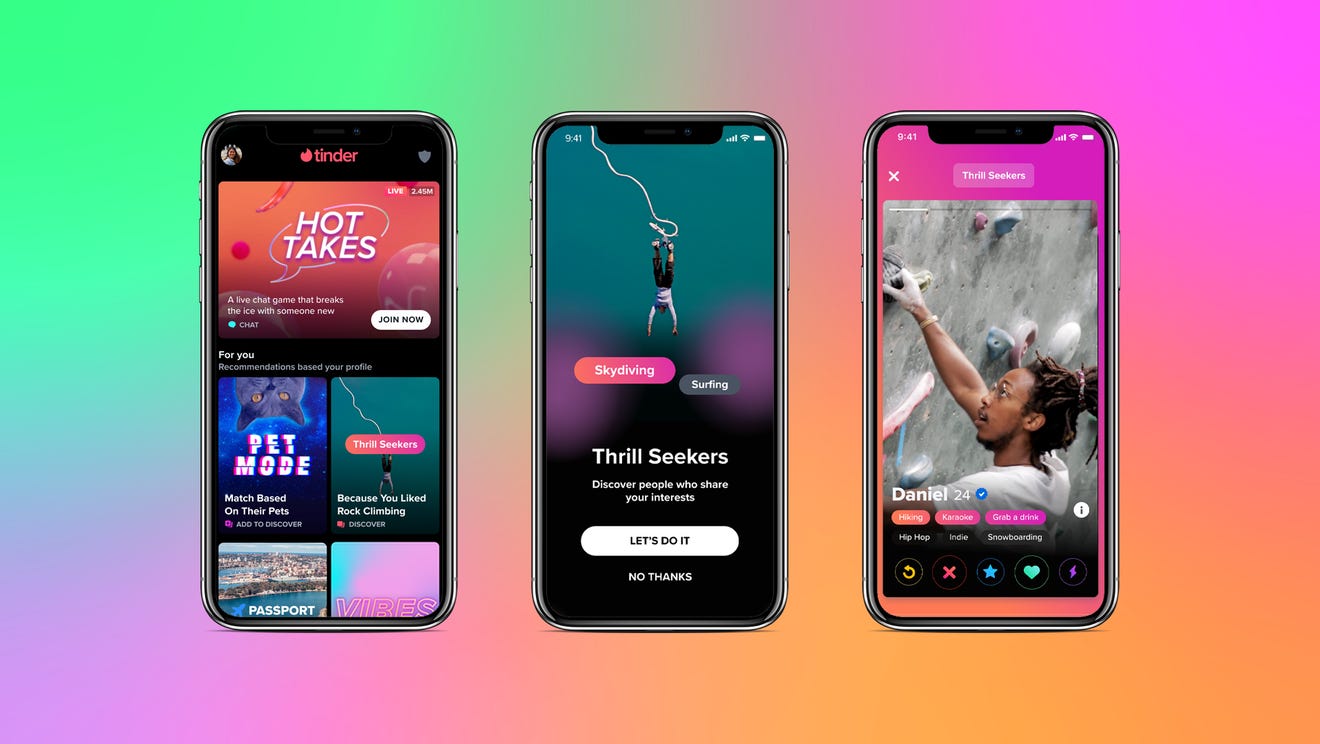
A screenshot of the Explore tab on Tinder | Image: USA Today/Tinder
Dating app Tinder on Tuesday added more ways for people to get to know each other from afar before meeting in a world changed by the pandemic.
“People want to take more time to get to know somebody virtually before deciding that they want to match and meet offline,” chief executive Jim Lanzone said in a statement.
The smartphone app for finding love, whether it be fleeting or life-long, unveiled new features including playful “Hot Takes”: multiple-choice questions to see whether users’ “flirty banter” is in sync.
Tinder is also providing an option to add video clips to user profiles to provide glimpses of people’s lives, interests or adventures.
As the pandemic accelerated trends of remote work, learning and socializing, it also gave momentum to cultivating new relationships more deeply online before committing to connecting in the real world, according to Lanzone.
“Twenty-somethings today want something a little bit different, which is more substantive and more virtual-first,” Lanzone said.
“That trend, generationally, was pre-Covid. Then Covid just really cemented it across all generations.”
The “Gen Z” demographic, referring to people in their early twenties, accounts for more than half of Tinder’s users, according to the company.
“The ultimate need for people is to meet offline, and to have a real relationship in the real world,” Lanzone said.
“How they get to that point and the tools they use to get to that point have shifted.”
Tinder makes its money from subscriptions that provide more features than the basic free access to the platform. The app is available in some 190 countries.
The dating app is known for its trademark system of swiping right on a screen to signal interest in someone’s profile and left to pass on them.
Tinder, owned by Match Group, boasts being the top dating app in the US and elsewhere.
Despite getting a reputation as an app for casual sexual encounters after its launch in 2012, Tinder has become the top dating site for marriage, according to a recent report on wedding website The Knot.
“Not only are we one of the leading sources of relationships and marriages, we are also one of the leading reasons why there has been an increase in interracial relationships,” Lanzone said.
“That comes from getting outside of your social circle and opening up these possibilities.”